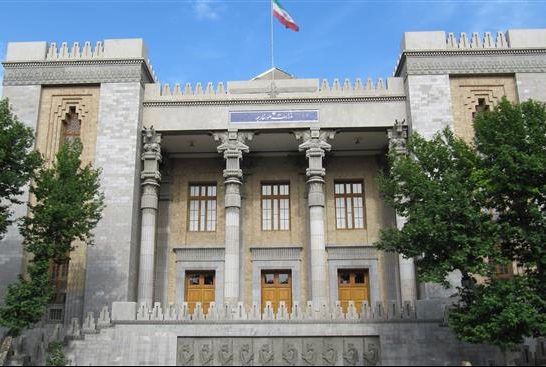What follows is the full text of the statement released on Tuesday, September 25, 2019:
The Islamic Republic of Iran strongly condemns and rejects the irresponsible claim of the British, French and German heads of state about the attack of the Yemeni government’s armed forces against Saudi facilities. Iran stresses that pinning the blame on a third government for an attack carried out in the course of a full-scale war between the Saudi and Yemeni sides is per se a provocative and extremely destructive move at a time when the Yemenis have officially claimed responsibility for the attack, let alone that the accusation is levelled before any investigation, without any evidence, and merely based on the ridiculous argument that “there is no other possible explanation.”
Such statements and destructive actions will only add fuel to the devastating fire of the Yemeni war and make it more likely to expand. Levelling prearranged accusations against governments for political purposes, far from the realities on the ground, along with other supportive policies towards Saudi Arabia’s child-killing regime, especially the massive arms exports to the country, is a dangerous trend, and the responsibility for its impacts on regional peace and stability will lie with the three countries that issued the statement.
In addition, the points mentioned in the statement about the JCPOA and the necessity for renegotiation over Iran’s nuclear program, which have been articulated more explicitly and dangerously in the remarks made by British Prime Minister Boris Johnson, are a stark violation of the letter and spirit of the JCPOA and the UN Security Council Resolution 2231.
The nuclear deal between Iran and the P5+1, as mentioned in its title, is a “comprehensive” deal that has been negotiated and finalised as a final solution to the fabricated crisis over Iran’s nuclear program. The clear and precise timings provided in the JCPOA are another proof of this. The parties to the deal, which has also been endorsed by the Security Council, have reiterated in this document that at the end of the period envisaged in the JCPOA, Iran’s nuclear program will be treated like that of any other member of the Non-Proliferation Treaty (NPT), and the Islamic Republic of Iran will accept nothing beyond that.
The Islamic Republic of Iran reiterates that its missile and defence program is based on its indigenous capability and its policy of deterrence, and proportionate with existing threats. Therefore, the measures taken for its development are fully responsible and in accordance with international law and regulations. The issue of Iran’s missile tests has been settled in the JCPOA and the Security Council Resolution 2231, and this has been repeatedly endorsed by the officials of the negotiating parties, including in a recent statement by the US President who – albeit in disapproval of the JCPOA – explicitly acknowledged that Iran’s ballistic missile tests were “permissible”. Iran strongly rejects any attempt to enter into negotiation over these issues.
The Islamic Republic of Iran has repeatedly emphasised the need for the regional countries to engage in dialogue and interactions aimed at creating mechanisms to promote peace and security in the region and put an end to the Yemen crisis. Iran expresses its deep concern over the humanitarian catastrophes that this war has caused for the Yemeni people and once again declares its readiness to do so.
